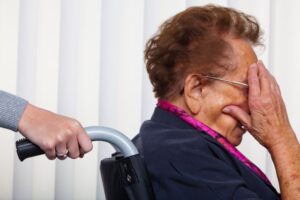In the ever-evolving landscape of healthcare, the importance of cultural sensitivity cannot be overstated. Nowhere is this more crucial than in nursing homes, where diverse populations come together to receive care and support. Bowie, Maryland, with its rich tapestry of cultures and backgrounds, demands a nuanced approach to healthcare services. Alpert Schreyer, LLC recognizes the significance of addressing cultural sensitivity in nursing homes in Bowie, aiming to advocate for the rights and well-being of residents from all walks of life.
Understanding Cultural Sensitivity
Cultural sensitivity in healthcare is about recognizing and respecting the diversity of individuals and tailoring care to meet their unique needs. In nursing homes, where residents often have complex health conditions and varying cultural backgrounds, a one-size-fits-all approach is not just inadequate but can also be detrimental. Culturally sensitive care acknowledges the impact of cultural, linguistic, and social factors on health and strives to create an inclusive and supportive environment.
Bowie’s Diverse Community
Bowie, Maryland, is a microcosm of cultural diversity. With a population encompassing various ethnicities, religions, and languages, nursing homes in Bowie must be equipped to handle the unique needs and expectations of each resident. From African American to Hispanic, Asian, and beyond, the cultural mosaic in Bowie requires a healthcare system that can navigate and embrace this diversity.
Language Barriers and Communication
One of the primary challenges in culturally sensitive care is overcoming language barriers. Effective communication is the cornerstone of quality healthcare, and language differences can impede the understanding of medical conditions, treatment plans, and overall well-being. Nursing homes must employ multilingual staff, provide translation services, and ensure that vital information is accessible in multiple languages.
Respecting Religious and Dietary Preferences
Cultural sensitivity extends
beyond language to encompass various aspects of residents’ lives, including religious and dietary preferences. Nursing homes in Bowie must be attuned to the diverse religious practices of their residents, ensuring that appropriate accommodations are made for worship, rituals, and celebrations. Additionally, respecting dietary restrictions based on cultural or religious beliefs is paramount to providing holistic and culturally sensitive care.
Training and Education for Staff
To foster cultural sensitivity within nursing homes, staff members need to be adequately trained and educated. Alpert Schreyer, LLC advocates for ongoing cultural competence training for healthcare professionals in Bowie’s nursing homes. This training should cover not only awareness of diverse cultural practices but also the development of communication skills and empathy. By investing in the education of staff, nursing homes can create an environment where residents feel understood, respected, and cared for on a personal level.
Celebrating Cultural Events
An essential aspect of promoting cultural sensitivity is recognizing and celebrating cultural events. Nursing homes in Bowie should organize and participate in festivities that align with the diverse backgrounds of their residents. Whether it’s Lunar New Year, Diwali, Juneteenth, or other cultural celebrations, incorporating these events into the nursing home’s activities can create a sense of community and belonging for residents.
Community Engagement and Partnerships
Alpert Schreyer, LLC recognizes the importance of nursing homes actively engaging with the broader Bowie community to enhance cultural sensitivity. Establishing partnerships with local cultural organizations, community centers, and religious institutions can provide valuable insights and resources. By involving the community, nursing homes can better understand the unique needs of their residents and tailor their services accordingly.
Addressing Disparities in Healthcare
Cultural sensitivity is closely linked to addressing healthcare disparities. Alpert Schreyer, LLC emphasizes the need for nursing homes in Bowie to actively identify and eliminate disparities in healthcare access, quality, and outcomes among different cultural groups. This involves analyzing data, implementing targeted interventions, and advocating for policies that promote health equity.
Legal Advocacy for Culturally Sensitive Care
As a law firm dedicated to protecting the rights of individuals, Alpert Schreyer, LLC is committed to legal advocacy for culturally sensitive care in Bowie’s nursing homes. This includes ensuring that residents receive the appropriate level of care regardless of their cultural background and holding institutions accountable for any discriminatory practices. By leveraging legal experience, Alpert Schreyer, LLC seeks to contribute to the creation of a healthcare system in Bowie that prioritizes cultural sensitivity.
Embracing Diversity: A Collaborative Effort
Cultivating cultural sensitivity within Bowie’s nursing homes requires a collaborative effort from various stakeholders. Beyond legal advocacy, community engagement, and partnerships with cultural organizations, there are additional strategies to promote an inclusive and respectful environment for residents.
Staff Recruitment and Diversity
A crucial step toward cultural sensitivity is ensuring that the nursing home staff reflects the diversity of the residents they serve. Alpert Schreyer, LLC acknowledges the importance of intentional recruitment practices that prioritize a diverse workforce. Having staff members from different cultural backgrounds enhances understanding, communication, and empathy, ultimately contributing to a more culturally sensitive care environment.
Cultural Competence Training Modules
Building on the need for ongoing staff education, implementing comprehensive cultural competence training modules is essential. These modules should cover topics such as cultural awareness, effective communication strategies, and the understanding of cultural nuances in healthcare. Alpert Schreyer, LLC advocates for nursing homes to integrate these training sessions into their regular professional development programs, fostering a continuous commitment to cultural sensitivity.
Creating a Culturally Inclusive Environment
Beyond formal training, creating a culturally inclusive environment involves fostering a sense of belonging for residents. This can be achieved through simple yet impactful measures, such as displaying culturally diverse artwork, providing literature in multiple languages, and ensuring that communal spaces reflect the various cultural backgrounds of residents. Alpert Schreyer, LLC encourages nursing homes to actively seek resident input in shaping these cultural elements, fostering a collaborative and inclusive atmosphere.
Cultural sensitivity is not just a desirable aspect of healthcare—it is an imperative, especially in the diverse community of Bowie, Maryland. Alpert Schreyer, LLC stands as a champion for the rights and well-being of nursing home residents, advocating for policies, practices, and legal measures that promote cultural sensitivity. By addressing language barriers, respecting religious and dietary preferences, providing staff training, celebrating cultural events, engaging with the community, and advocating for health equity, nursing homes in Bowie can truly become centers of compassionate and culturally sensitive care.
If you or a loved one have experienced issues related to cultural insensitivity or discrimination in a nursing home, contact Alpert Schreyer, LLC today. Our experienced legal team is dedicated to ensuring that everyone receives fair and culturally sensitive treatment in healthcare settings. Your well-being matters, and we are here to advocate for your rights. Schedule a consultation with us to discuss your case and explore your legal options. Alpert Schreyer, LLC—is committed to justice, equality, and culturally sensitive care.
